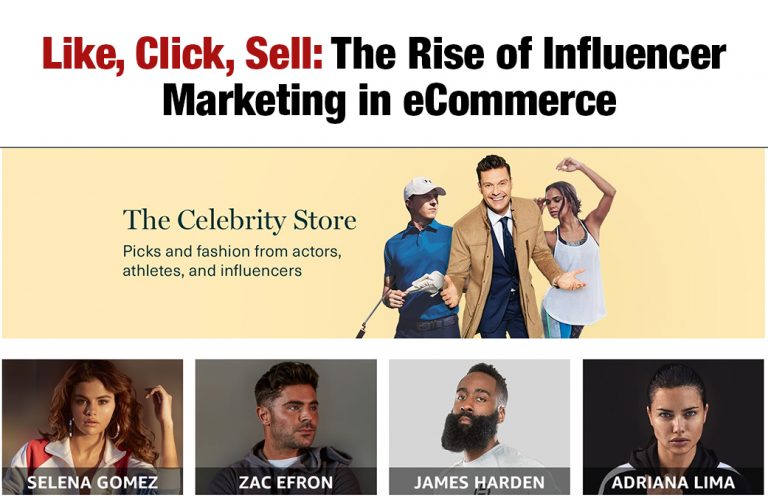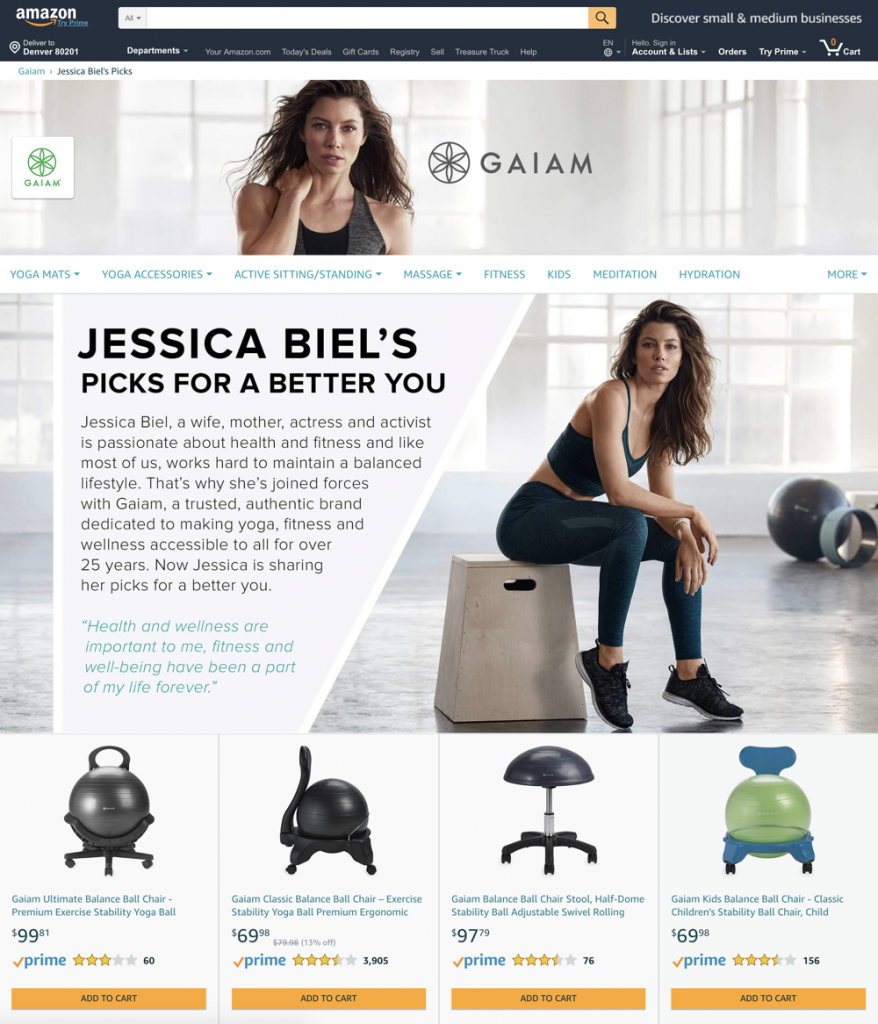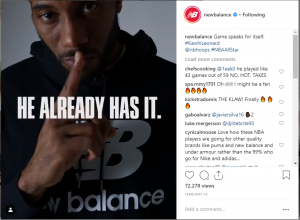

GET MARKETING INSIGHTS TO GROW YOUR AMAZON BUSINESS
– MARKET SHARE
– COMPETITOR INSIGHTS
– PRODUCT CATEGORY POTENTIAL & A LOT MORE!
Like, Click, Sell: The Rise of Influencer Marketing in eCommerce


Influencer marketing has become a common term in the digital and retail industries, with an increasing number of brands leveraging celebrity and online influence as sales methods. Influencer marketing traditionally encompasses a brand choosing an influencer based on the size, quality and relevance of their online following, sending the influencer a product to review or promote, and paying them to post about it across their social channels.
With a steady increase in online shopping, the use of influencer marketing is shifting, including a narrower focus on eCommerce. While influencer marketing is typically used to drive awareness for a brand, with sales occurring as a by-product of that awareness, those who sell online can now leverage influencers in ways that more directly affect sales.
Amazon
Amazon has embraced influencer marketing in the last one to two years by launching two major initiatives: The Amazon Influencer Program and the Amazon Celebrity Store.
The Amazon Influencer Program, an influencer-specific extension of the Amazon Associates Program, rewards social media influencers for recommending their favourite products on a personalized Amazon Storefront. To qualify for the program, influencers must provide a link to their most promising social media account – either YouTube, Instagram, Twitter or Facebook – which is then vetted based on follower count, engagement and relevancy of content. Once someone is accepted into the program, they can compile their favourite products into their own Storefront, providing recommendations and receiving a commission on sales.


Influencers are not typically celebrities in the traditional sense, but rather “real” people who have developed a following based on the content they produce online. Celebrities do however bring influence of their own. Amazon recently launched its Celebrity Store, using a similar approach to its Influencer Program by providing celebrities with their own Amazon Storefronts that showcase products seemingly enjoyed and recommended by the celebrity in question.
Each of these Amazon programs bring relevance, and ideally, consumer trust to the brands being featured. As online shoppers browse the products recommended by their favourite celebrities or online influencers, they can make a purchase right then and there.


Easily one of the largest platforms for social media influencers, Instagram is also growing in popularity for eCommerce sellers because of its recent updates to the platform. The photo-sharing social media channel now offers eCommerce selling features to brands and retailers who want to sell items directly through the app. This is especially exciting for brands who have existing relationships with Instagram influencers, or who have been contemplating influencer marketing on the platform.
Instead of an influencer promoting a product in a post and directing his or her followers to the brand’s website externally (often difficult without the ability to link a URL in an Instagram post), an influencer can actually add a ‘Shop Now’ URL to an Instagram Story, or a product tag to an image. This leads users directly to a product listing with the ability to make a purchase immediately – closing a gap in the selling process.
Brand Ambassadors


Brand ambassadors have been used by companies to promote their brands and products since long before the term ‘influencer marketing’ was coined. Traditionally, a celebrity hired to act in television commercials and photo shoots, as well as wear or use the brand’s products while in the public eye, many brand ambassador commitments have now evolved to include activities like appearing in a brand’s social media posts or posting about the product themselves.
As brands start to leverage ambassadors in more interesting ways, the roles have also opened up to include more of the influencer-type rather than traditional celebrities alone. Examples of this are rampant in the beauty industry, where major cosmetic brands like Covergirl have started to add YouTubers to their roster of ambassadors – bringing a level of authenticity and trust to the brand.
Challenges
When it comes to using influencers as a marketing tactic in eCommerce, the first challenge is also the biggest: choosing the right people to not only promote your products but to properly represent your brand. It is critical to perform your due diligence in selecting the right influencers to ensure both their content and their values reflect your brand well.
In an effort to distinguish organic posts from sponsored influencer posts, social media channels like Instagram have cracked down on users trying to pass off paid brand relationships as organic content. As such, it is important for brands to follow channel-specific guidelines when leveraging influencers to promote their products online, being transparent in the fact that they are using influencers to help them sell.
As both eCommerce and influencer marketing continues to grow, new methods and platforms will emerge in which brands can leverage the power of influence to promote and sell their products online. Deciding where to use influencers, navigating relevant challenges and finding the right people to represent your brand can lead to a boost in eCommerce success.

